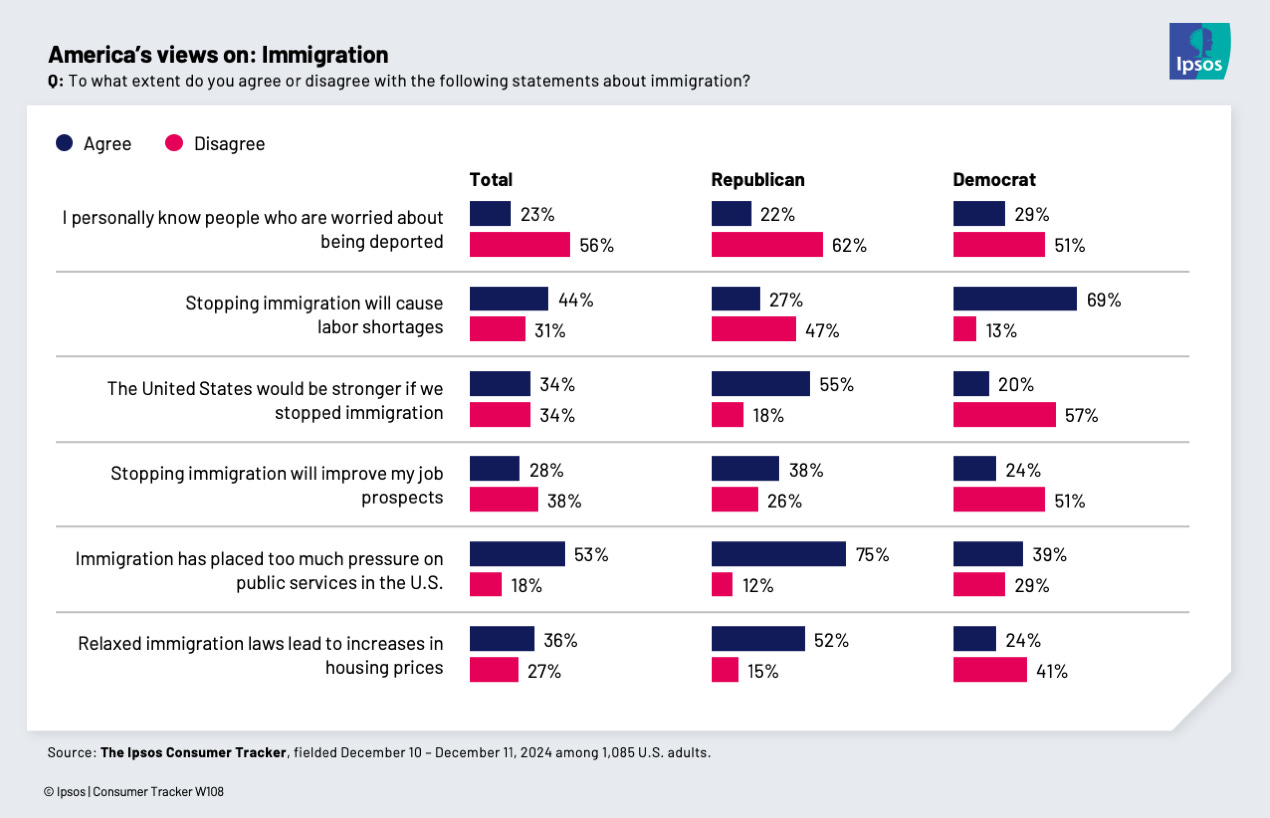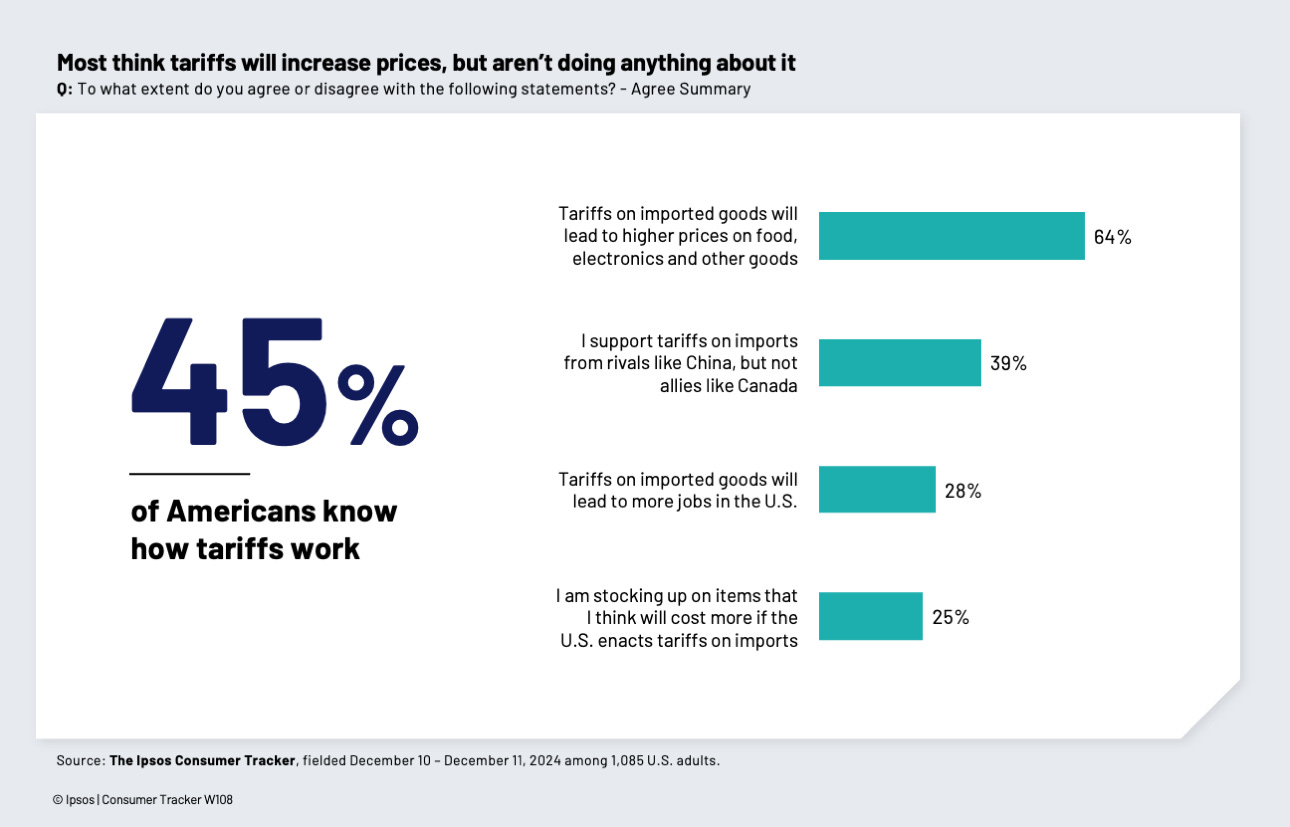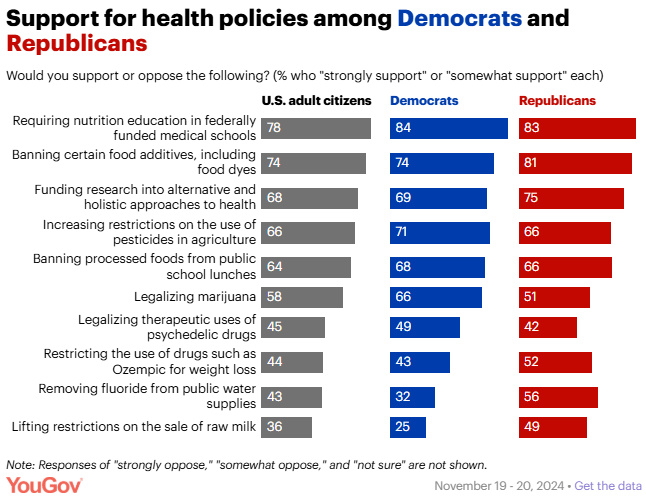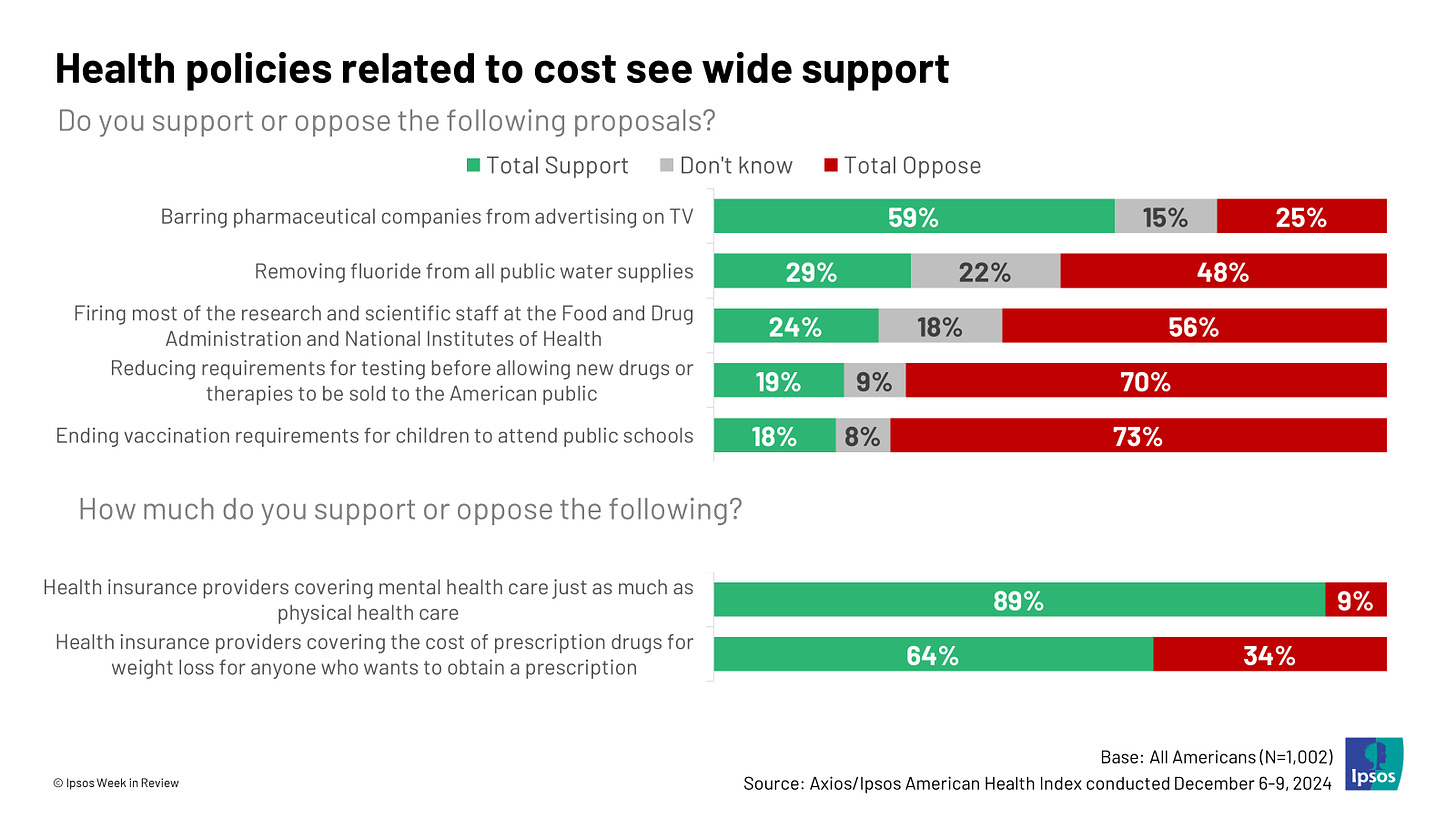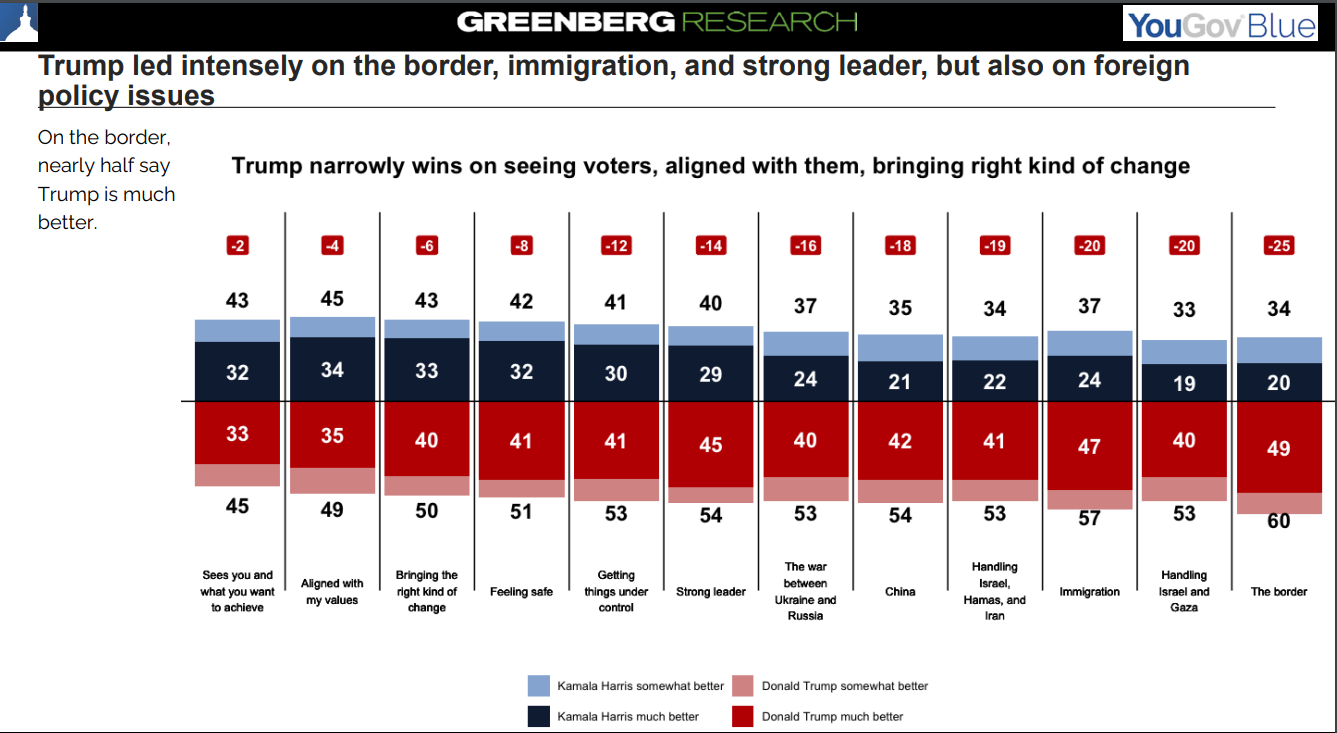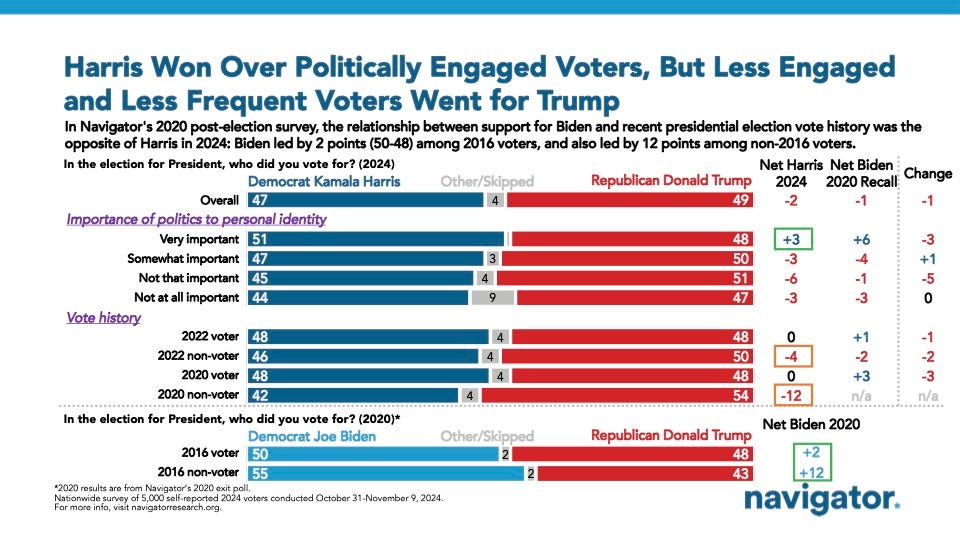37 questions for 2025 and beyond Matt Carmichael, Ipsos As the biggest election year in human history draws to a close, the Ipsos Consumer Tracker looks at the issues that will shape the U.S. under Trump's second term.
Americans are sour on tariffs if they spark inflation, Reuters/Ipsos poll finds Jason Lange and David Lawder, Reuters Americans don't think import tariffs are a good idea if they lead to higher prices and are skeptical they would help U.S. workers, a Reuters/Ipsos poll found, underscoring the political risks to President-elect Donald Trump's plan to impose heavy fees on goods from China, Mexico and other nations. Most think tariffs will increase prices, but aren’t doing anything about it Matt Carmichael, Ipsos 86% of Democrats believe that tariffs will lead to higher prices on food, electronics and more, compared to just 46% of Republicans, according to the Ipsos Consumer Tracker
What Americans think of RFK Jr.'s Make America Healthy Again agenda Taylor Orth, YouGov While many Americans haven't heard of Make America Healthy Again — a rallying cry for Robert F. Kennedy, Jr., Donald Trump's pick as the next Director of Health and Human Services (HHS) — most do find common ground with Kennedy on at least one health or nutrition-related issue, a new survey finds.
Where Americans stand on healthcare heading into Trump’s second term Clifford Young, Sarah Feldman & Bernard Mendez, Ipsos Five charts on how Americans feel about the state of U.S. healthcare, Trump’s health-related cabinet picks, and some of the key policies his nominees want to implement
Our outlook keeps improving Matt Carmichael, Ipsos When it comes to their family, community, and country, Americans rated 2024 higher than prior years, according to the Ipsos Consumer Tracker Analyzing the 2024 Presidential Vote: PRRI’s Post-Election Survey PRRI A new PRRI survey of 4,757 voters explores the U.S. political and cultural landscape after the 2024 election, including the impact of partisanship, race, and religion on voters’ choices and their feelings about the election’s outcome. Additionally, the survey considers how Christian nationalism and authoritarianism are linked to presidential vote choice. In the wake of the election results, the survey also considers Americans’ confidence in our elections, views about our political parties, and attitudes about the state of democracy in a second Trump term.
December 2024 Omnibus Echelon Insights 42% of Democrats say their party needs minor changes, 40% say it needs a “major overhaul,” and 12% say it doesn’t need to change. Voters oppose Joe Biden’s pardon of his son Hunter by a 26-58 margin. By a 47-39 margin, voters say they support “mass deportations” of illegal immigrants. Voters oppose eliminating the Department of Education by a 30-54 margin. The Meaning of Trump’s Victory: Post-election Survey Democracy Corps This was a change election that was made amazingly close by voters wanting the middle class to govern, not the richest and for women to have equal rights. Harris ran an effective campaign that ran well with white unmarried women, women college graduates, Asians, and Cheney conservatives. Trump dominated which candidate was better on the border and immigration, every policy issue, including China, and who was a “strong leader.” President Biden’s high disapproval created strong headwinds with white working class voters, Hispanics, and millennials.
2024 Post-Election Survey: Engagement and Vote History Analysis Maryann Cousens, Navigator Research This Navigator Research report is the seventh in a series of releases of findings from our post-election survey among 5,000 self-reported 2024 general election voters. This release focuses on how Americans voted in the 2024 election based on their voting history and political engagement, including what issues mattered most when deciding who to vote for, and how vote shares compared to that of the 2020 election.



